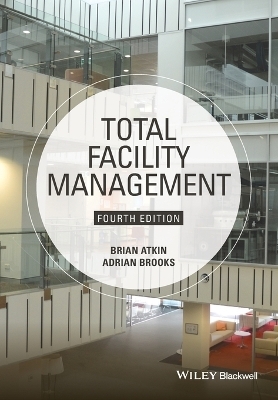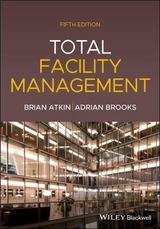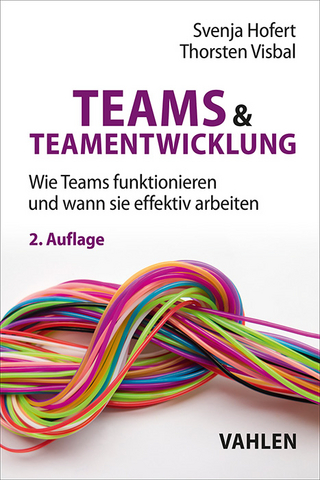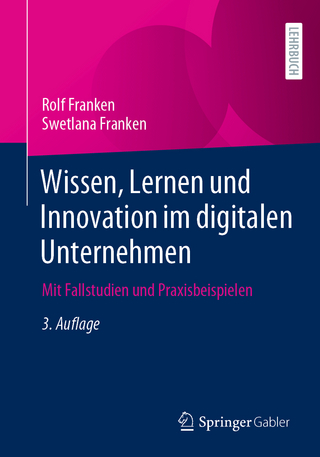
Total Facility Management
Wiley-Blackwell (Verlag)
978-1-118-65538-2 (ISBN)
The facility management body of knowledge now benefits from the publication of several national and international standards, none of which were available when earlier editions of the book were published. The opportunity has been taken to modify the structure and content of this new edition to align it with these standards to provide readers and their organizations with a comprehensive treatment of the subject. Greater emphasis has been given to facility planning, especially the briefing stage in the design of a new or refurbished facility; design for operability; stakeholder management; outsourcing; procurement; transition; performance management; environmental management; sustainability; maintenance management; information management and building information modelling (BIM). Throughout the book, the links between facility management practice and the organisation’s business objectives are emphasised.
Readers worldwide will find this fourth edition a valuable and thought-provoking blend of the principles and practice of facility management.
Brian Atkin PhD, MPhil, BSc, FRICS, FCIOB Brian Atkin is a Director of The Facilities Society, a not-for-profit body dedicated to interdisciplinary and cross-sector academic enterprise to support the needs of the UK research community, government, businesses and the public interest. His experience and achievements span the disciplines of project management, construction management and facility management. As a member of British Standards Institution’s FM Advisory Group and FM Technical Committee, he is well-placed to advise on current best practices and emerging trends in facility management. He has served on other advisory groups and steering committees covering standards, innovation, competitiveness and information technology (including BIM), and is actively involved in learning and business development for major corporations. Over the years, Brian Atkin has been appointed to professorships in the UK (University of Reading), Sweden (Lund University and The Royal Institute of Technology) and Australia (Queensland University of Technology). Adrian Brooks BSc (Hons) MBA MRICS Adrian is a Director of GVA Acuity Limited, a management organisation focused on the delivery of a broad range of services for property owners and corporate occupiers. Adrian is responsible for operations including both facility management and facility consulting, having held board positions in other property and facilities management businesses previously. Adrian is the Chairman of the FM Advisory Committee and a member of the Construction & Built Environment Sector Policy and Strategy Committee for the British Standards Institution. He continues to provide strategic advice to Blue chip organisations internationally and is a regular speaker on best practice techniques and facilities issues.
Preface to the Fourth Edition x
Abbreviations xii
Introduction 1
The organization 1
The customer as end-user 1
Principles, process and procedures 2
1 Fundamentals 3
Key issues 3
Introduction 4
Background 4
Key concepts 8
Other concepts 13
Key roles, responsibilities and accountabilities 15
Core competence in facility management 16
Conclusions 17
Checklist 18
2 Facility planning 19
Key issues 19
Introduction 20
Real estate management 21
The own, lease or rent decision 21
The totally serviced workplace 22
Space management 23
Space utilization and efficiency 24
Design and facility management briefing 26
The feasibility study 34
Design development 35
Stakeholders 36
Risks and opportunities 39
Conclusions 39
Checklist 40
3 Facility management strategy 42
Key issues 42
Introduction 43
The business context 44
Business drivers and constraints 45
Organizational management levels 46
Cross-cultural management 47
Strategy formulation 48
Strategic analysis 50
Solution development 53
Strategy implementation 55
Conclusions 57
Checklist 57
4 Human resources management 59
Key issues 59
Introduction 60
Personnel management 60
Conclusions 66
Checklist 66
5 Workplace productivity 68
Key issues 68
Introduction 69
Measuring productivity 69
Sick building syndrome 76
Design issues 77
Unconventional working arrangements 78
Conclusions 83
Checklist 83
6 Health, safety and security 85
Key issues 85
Introduction 86
Health, safety and security policy 87
Zero accidents 88
Occupational health and safety 88
Compliance 89
Hazard and risk assessment 92
Security and well-being 93
Conclusions 95
Checklist 95
7 The outsourcing decision 97
Key issues 97
Introduction 98
Establishing the baseline 99
Attributes of service provision 105
Options for service delivery 109
Evaluating options 116
Conclusions 118
Checklist 118
8 Procurement 120
Key issues 120
Introduction 121
The procurement process 122
Centralized versus decentralized procurement 123
Procurement policy and procedures 124
Roles, responsibilities and accountabilities 126
Prequalification of service providers 126
Request for proposals or tender 131
Tendering 140
Financial close 142
Conclusions 145
Checklist 145
9 Service delivery 147
Key issues 147
Introduction 148
The internal customer as end-user 149
Insourcing 150
The in-house team 150
External service providers 151
Mobilization 152
Contract management 155
Conclusions 162
Checklist 162
10 Specialist services and partnership 164
Key issues 164
Introduction 165
ICT services 166
Health-care services 169
Security and protection services 170
Custodial services 170
Professional services 171
Performance and SLAs 172
Risk, insurance and indemnities 172
Supplier management 173
Collaborative relationships 174
Public–private partnerships (PPPs) 179
Facility management and private-sector participation 187
Conclusions 189
Checklist 190
11 Performance management 192
Key issues 192
Introduction 193
Quality or performance 194
The post-implementation review 194
Post-occupancy evaluation (POE) 195
The service review 196
Updating service specifications and SLAs 199
Performance measurement 199
Benchmarking 208
Beyond benchmarking 214
The quality system 215
Conclusions 216
Checklist 216
12 Maintenance management 219
Key issues 219
Introduction 220
The maintenance strategy 221
The maintenance policy 221
Maintenance planning 222
Maintenance methods 227
Building logbooks 231
Permits and approvals 232
Inspections 232
Building services engineering installations 233
Manuals, registers and inventories 236
Maintenance management system 238
Conclusions 239
Checklist 240
13 Sustainable facilities 242
Key issues 242
Introduction 243
Sustainable development 244
Environmental management 245
Corporate social responsibility (CSR) 247
Zero carbon 248
Whole-life carbon 248
Environmental performance and energy efficiency 250
The building energy management system 251
Managing water resources 251
Managing waste 252
Management and end-user responsibilities 253
Technology-enhanced facilities 253
Innovative workplaces and housing 260
Conclusions 270
Checklist 271
14 Change management 273
Key issues 273
Introduction 274
Transition 275
Managing change 292
Organizational change 292
Innovation, research and development 296
Conclusions 298
Checklist 299
15 Information management 301
Key issues 301
Introduction 302
Managing information 303
The facility handbook 310
The facility user guide 311
Information and data 311
Information handover 323
Building information models (BIMs) 324
Systems and interfaces 327
Conclusions 329
Checklist 330
Appendices 332
A Glossary 332
B Prevention of fraud and irregularity 355
C Risks involved in outsourcing 361
D Contract provisions 363
E Typical sections of an SLA 366
Bibliography 367
References 369
Index 372
| Erscheint lt. Verlag | 6.2.2015 |
|---|---|
| Verlagsort | Hoboken |
| Sprache | englisch |
| Maße | 170 x 241 mm |
| Gewicht | 807 g |
| Themenwelt | Technik ► Bauwesen |
| Wirtschaft ► Betriebswirtschaft / Management ► Unternehmensführung / Management | |
| Schlagworte | Baubetrieb |
| ISBN-10 | 1-118-65538-9 / 1118655389 |
| ISBN-13 | 978-1-118-65538-2 / 9781118655382 |
| Zustand | Neuware |
| Informationen gemäß Produktsicherheitsverordnung (GPSR) | |
| Haben Sie eine Frage zum Produkt? |
aus dem Bereich



